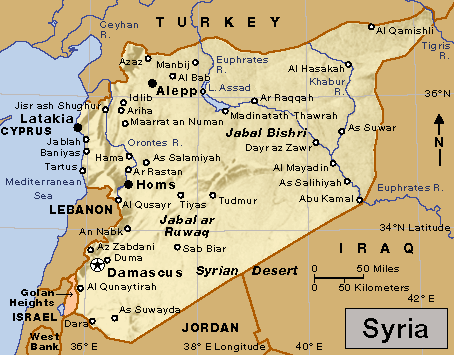Cuba In From the Cold
Tuesday, July 21st, 2015On July 20, 2015, longtime foes Cuba and the United States resumed formal diplomatic relations. After decades of open hostility, the landmark event signaled a new era in U.S.-Cuban relations. The Cuban Embassy in Washington, D.C., reopened with a flag-raising ceremony, while an event in August will mark the reopening of the U.S. Embassy in Havana. The neighbor countries broke off ties after the 1959 Communist takeover of Cuba and had been largely at odds—even close to war—ever since.

A street scene in Havana, Cuba’s capital, features colorful buildings and cars from before Cuba’s revolution. A trade embargo with the United States meant that for many years Cubans have not been able to buy newer cars. © Shutterstock
In the 1950’s, Fidel Castro, a young lawyer, led a revolution against Cuban dictator Fulgencio Batista—a U.S. ally. After years of struggle, Castro’s rebels forced Batista from power, and Fidel Castro became prime minister of Cuba in 1959. Castro’s new government seized lucrative U.S.-owned businesses in Cuba and developed strong ties with the Soviet Union. This was at the peak of the Cold War, when the United States and Soviet Union were competing for global dominance. In October 1960, the United States placed an economic embargo on Cuba, and, three months later, ended diplomatic relations.
In April 1961, Cuban exiles sponsored by the U.S. Central Intelligence Agency (CIA) invaded Cuba at the Bay of Pigs on the south coast. Castro’s forces crushed the invasion. Cuba, however, feared further U.S. meddling and began accepting Soviet military aid, including nuclear missiles. In October 1962, U.S. President John F. Kennedy ordered a naval blockade to halt further arms shipments into Cuba. Kennedy demanded that the Soviet Union remove all missiles from the island and dismantle the remaining missile bases. For days, the world stood on the brink of nuclear war. Finally, the Soviet Union removed the weapons after Kennedy privately agreed not to invade Cuba.
After the Bay of Pigs incident, relations between Cuba and the United States remained strained. Partial diplomatic relations between the two countries were restored in 1977, but the U.S. trade embargo remained. After the fall of many Communist governments—including that of the Soviet Union in 1991—the Cuban government undertook limited reforms that loosened state control over parts of the economy. The government also began improving relations with Canada and with European and Latin American nations. A host of problems prevented a U.S.-Cuban rapprochement (renewal of friendly relations), however, including the trade embargo, economic and political differences, and the political clout of Cuban exiles in the United States.
In 2008, two events catalyzed a fast-moving diplomatic thaw. In Cuba, Raúl Castro took over for his ailing elder brother and announced a number of economic reforms. In the United States, the election of Barack Obama as president marked a sharp change in that nation’s approach to foreign policy. In 2009 and 2011, the U.S. government eased rules about traveling to and sending money to Cuba and allowed U.S. telecommunications companies to operate there. In 2013, Cuba’s government removed the requirement for costly exit visas, so Cubans could leave the country with only a passport. In 2014, Raúl Castro and Barack Obama announced that the United States and Cuba would soon restore full diplomatic relations—a huge step in solving the many problems that still exist between the neighbor countries.
Other World Book articles:



